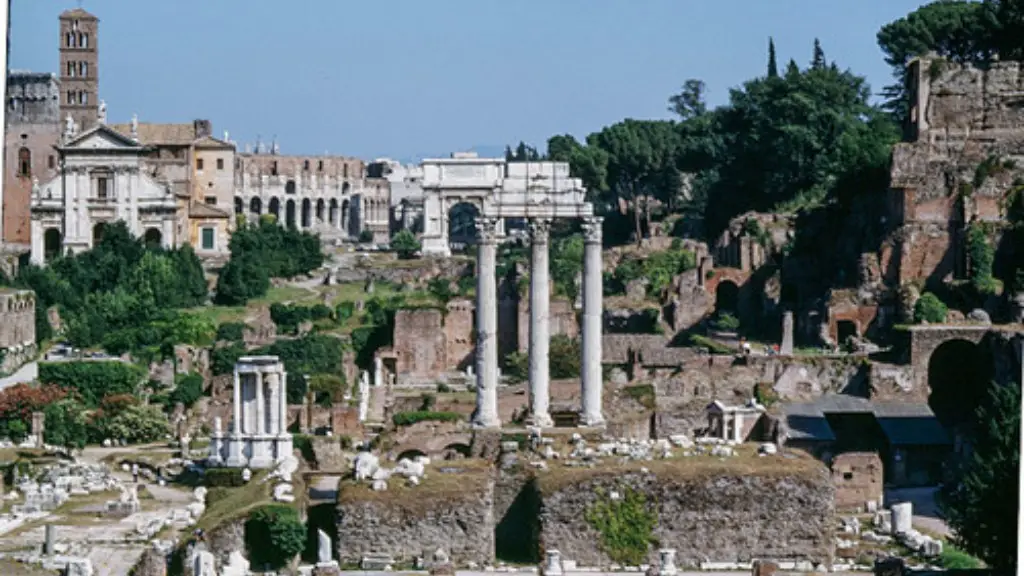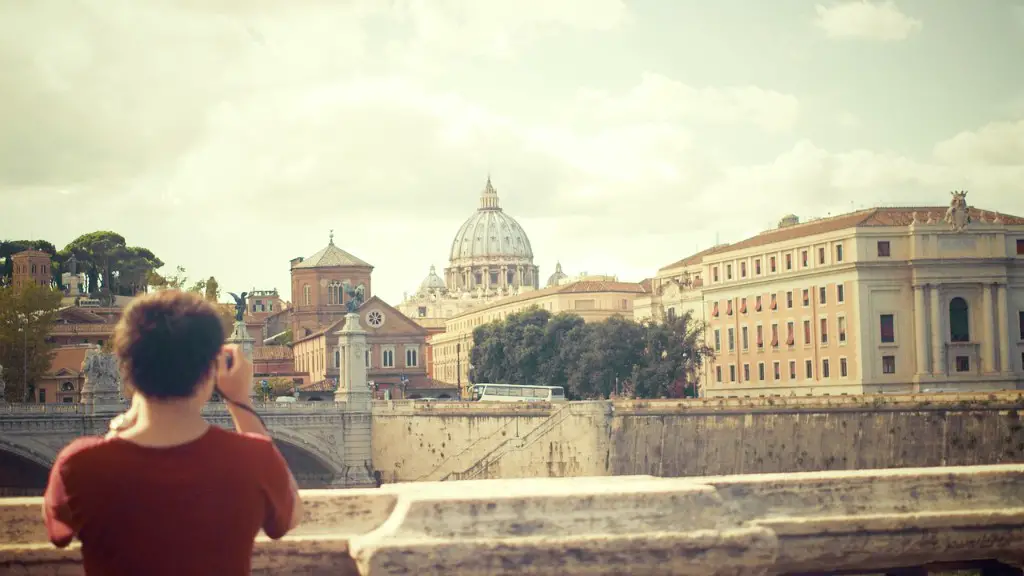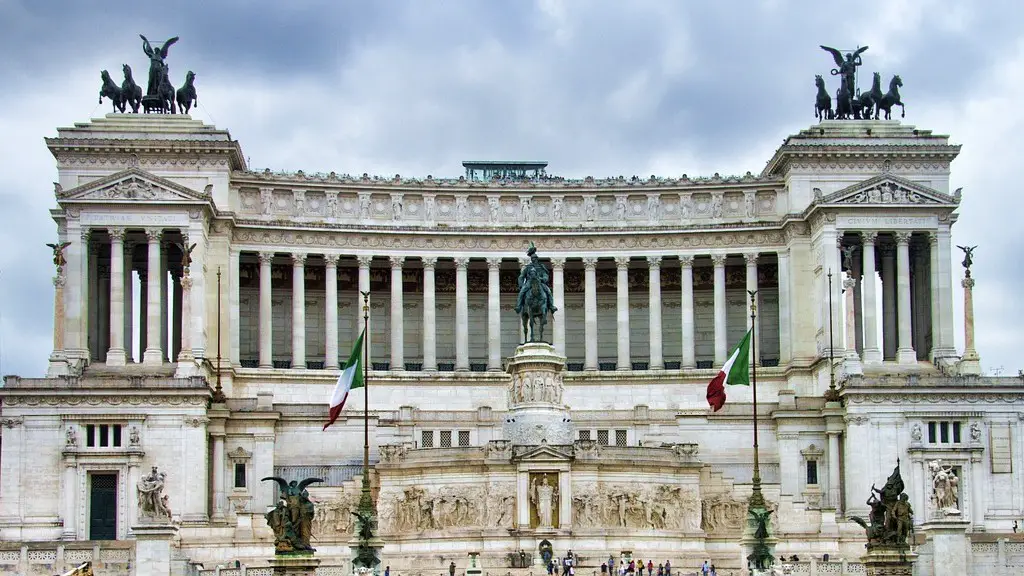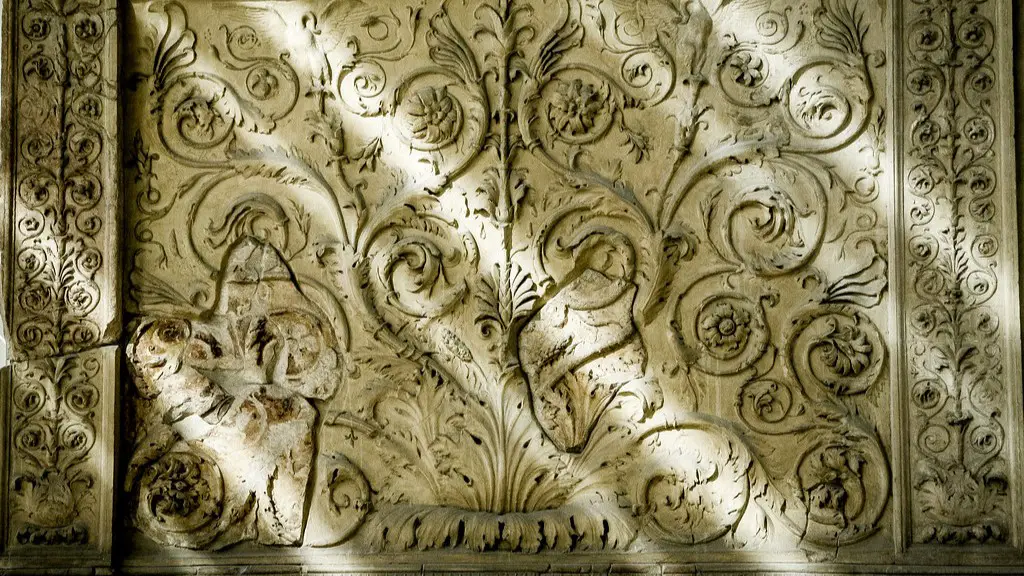Ancient Rome and Its Unparalleled Architectural Achievements
The city of Rome was said to have been founded in 753 BC, becoming the centre of the ancient world that covered much of the known world at the time. The Roman Empire is renowned for its architecture, public works and engineering feats that would stand the test of time and have a lasting impact on their civilisation even centuries later. Johann Wolfgang von Goethe, the German poet and polymath, devoted years of his life to understanding the effect Ancient Rome had on the show of art and culture worldwide.
In his essay “The Architects,” Goethe speaks of the influence of the ancient Romans. In it, he speaks of how these architects spoke of the “deep respect” they had for the Romans and how they were a “symbol of greatness” and a “standard they reach out to,” comparing them to the Greek gods and how people admired them as they were “inventors of a refined culture.” Goethe argues that the ancient Romans were “like bright stars and the beacons of the art world, pointing out the direction and the aim to strive for” in regards to architecture.
Goethe speaks of the famous and timeless archaeological finds that give us insights into Ancient Rome’s engineering feats, such as the Colosseum, the Pantheon and The Trajan’s Forum, writing, “When you enter one of Rome’s old buildings, all their grandeur, size and skill become so clear it’s almost uncanny. An experienced eye can distinguish a conscious architect, an all-embracing and lasting plan, an intensity of feeling for the art of the craft.” Goethe, recognizing the impact of Ancient Rome, begs the reader to “appreciate the reviving power of antiquity and wonder at the now-forgotten force which worked with grandeur and mastery.”
Greco-Roman Influence on Esoteric Art, Literature and Philosophy
Goethe understood the far-reaching effects of the Romanesque architecture of their time, recognising the great influence it had on the world. He acknowledges the influence of the Greco-Roman culture in the areas of the esoteric, literature and philosophy. He extolls the “governing sciences” of the ancients, such as astrology and magic.
He also finds the resourcefulness of the Romans in literature awe-inspiring and notes that the visitors of Rome should “spend every moment” in reading Virgil and Cicero. He calls these “guardians to humanity” and likened their work to “the most beautiful harmonious music.” Goethe also noted the influence of Greco-Roman philosophy, from Plato and Aristotle to the Epicureans and Stoics.
Goethe not only praises the Romans for the philosophical and literary achievements, but also considers them to have a remarkable ability to adapt and innovate. He admires their organisational skills, noting their ability to “combine” old ideas. He admires the “magnificent” accomplishment of the Roman Senate that used the “wisdom” of the ancients to move forward and endure the test of time.
The Greatness of the Ancient Roman Emperors
The greatness of the ancient Roman emperors was something that Goethe positively commented on, noting the ability of these men bring “new energy” and “enterprise” to the citizens of Ancient Rome. He admired the courage of the founders of this “marvellous order” and spoke in fond remembrance of the “renaissance” brought about by Augustus and Julius Caesar.
In his piece, Goethe mentions the significance of Grandeur and power of the Roman emperors, viewing them as lords of the world. He speaks of how these rulers were able to extend their borders in a manner that “turns great cities into nothing.” He also speaks of how they were able to build glorious monuments that stood the test of time, inspiring gratitude from the citizens of Rome and inspiring similar monuments to be built in other parts of the world. Goethe also noted the power of the Roman army, noting how the army “exhibited powers never before seen.” He additionally wrote about the political abilities of the Roman emperors and their “art of managing public affairs” which remain a source of inspiration for many today.
How Ancient Rome Shaped the World
Goethe spoke at length about how the Ancient Romanesque culture shaped the world and noted how their achievements inspired people worldwide. He believes that “great works” should be attributed to those who were part of the Roman Empire. Goethe explained how the achievements of the ancient Romans created a “tremendous bond” among citizens of the ancient world. He praised the Roman Empire for protecting their citizens and spreading the Roman code of law across the lands they conquered.
Goethe spoke particularly of the lasting influence which the Roman Empire had on other empires, such as that of France, Spain and Portugal. He spoke of how true French art and culture was only achievable by looking towards the culture of the Romans for inspiration. He also noted the effects which the Roman Empire had on Europe and the rest of the world in terms of the language spoken and the religion practiced.
Goethe was clearly in awe of the Ancient Romanesque culture and its lasting impact on the world. He speaks of the greatness of the grace and grandeur of the monuments, the power of the Roman army, the political genius of the rulers and the political and civilizing powers of the Empire. He also speaks of the lasting impact the empire had on other cultures, including art, literature and philosophy.
The Impact of Political Rule and Structure on Ancient Rome
Goethe also pays attention to how Ancient Rome gave the world a new form of government, both political and civil. He noted the genius of the Roman leaders in incredibly complex areas, such as politics and economics. According to Goethe, Rome had an “amazing” ability to discover “rules of politics” and was “always able to construct a system of politics which insulated its power from being abused.”
Goethe speaks of the “tremendous power” which the Senate had in Ancient Rome, taking on the role of “guardians and interpreters of Rome’s sound natural laws.” He speaks of the steps taken by Romans such as Caesar Augustus and Cinna, who in their reigns worked to “rid the government of its errors” and promoted “a spirit of harmony and understanding”, bringing a “revival” in the realm of politics. This in turn inspired the leadership of other empires.
Goethe speaks of the great effects which Ancient Rome had on the political structure and organisation of other civilisations worldwide. He notes that the “idealistic and practical” aspects of Roman rule still stand today, having “lasted through the centuries with its core values” providing guidance in the matters of their government and politics. Goethe also speaks of the role Ancient Rome has had in the development of other forms of government, such as democracy and republics, being that to this day, its “spirit of liberty” remains as a rallying call for political organisations worldwide.
The Lasting Legacy of Ancient Rome
Goethe’s words honour the legacy of Ancient Rome and its treasures, both physical and intellectual, rarely seen in any other part of the world. He speaks of how there is no other culture quite like Ancient Rome, a culture “built on a foundation of plasticity and grace, a language of power and design, an expression of will and ambition, an expression of grandeur, beauty and stability.” He understood the influence and impact which the Greco-Roman culture had on the world at large, as well how it contained a “wisdom and knowledge so great” that it still at the 21st century stands as a major source of inspiration and admiration. Such thought has been echoed by many who have lauded the “everlasting architectural mysteries” of Ancient Rome, echoing Goethe’s words about this “fountainhead of creative genius”.
For generations, the worlds of architecture, literature and philosophy have paid tribute to the lasting legacy of Ancient Rome, an unparalleled civilization that continues to stands the test of time. The eternal city and its landmarks, laws and language are a testament to the greatness of its past, so much so that the works of its architects, writers and philosophers have left an indelible mark on our daily lives and will remain so for many centuries more.



